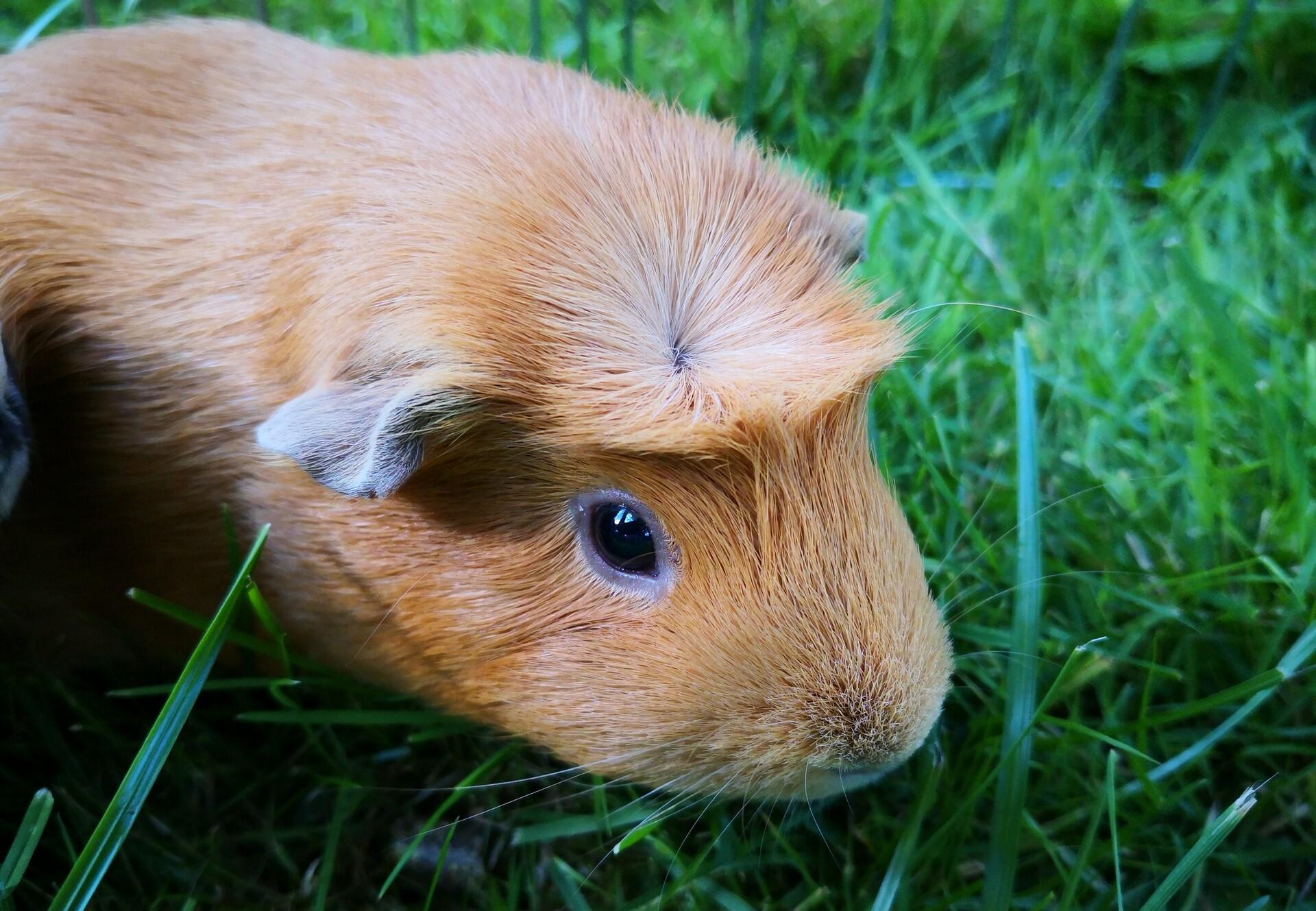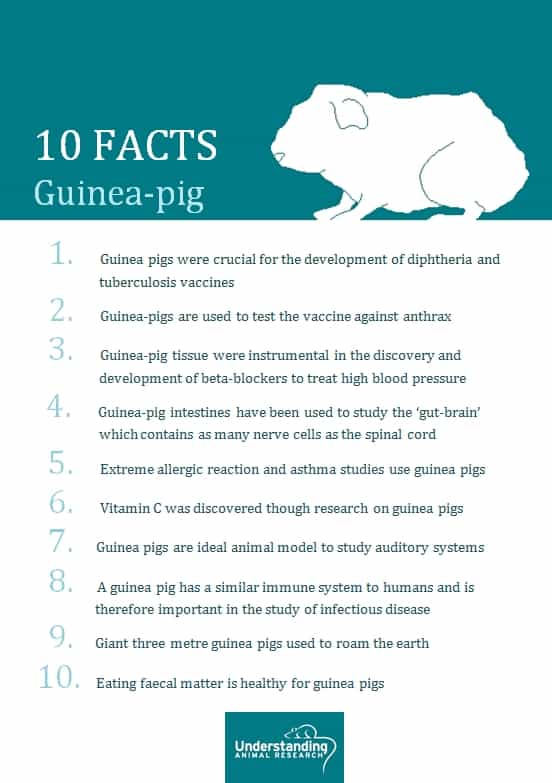Guinea pigs require a lot of attention and can be noisy pets. They have a long lifespan and need consistent care.
Guinea pigs are social animals that can get lonely if not given enough interaction. They also have specific dietary needs and require a spacious living environment to thrive. It’s important to consider these factors before getting a guinea pig as a pet.

Credit: www.four-paws.org
Contents
The Misconception Of Low Maintenance
Time Commitment
Guinea pigs are often mistakenly seen as low-maintenance pets, but the reality is quite the opposite. They require a significant amount of time and effort to ensure their well-being. From daily interaction and playtime to regular cage cleaning and grooming, guinea pigs demand a considerable time commitment from their owners.
Daily Care Needs
Guinea pigs have specific daily care needs that cannot be overlooked. Their diet must include a variety of fresh vegetables, high-quality hay, and vitamin C supplements. Additionally, they require a clean living environment, with bedding changes and cage spot-cleaning being essential tasks that cannot be neglected.

Credit: www.youtube.com
Health Issues In Guinea Pigs
Common Illnesses
Guinea pigs are prone to several common illnesses that can affect their well-being. Respiratory infections, caused by bacteria, viruses, or fungi, are a frequent health issue. These infections can lead to symptoms such as wheezing, sneezing, and labored breathing. Another common illness is dental problems, which can result from overgrown teeth, leading to difficulty eating and weight loss.
Veterinary Costs
Guinea pig owners should be prepared for potential veterinary costs associated with treating these health issues. Consultation fees, medication costs, and diagnostic tests can add up. Additionally, surgical procedures may be necessary for certain conditions, further increasing veterinary expenses.
Dietary Challenges
Dietary challenges are a crucial aspect of caring for guinea pigs, as their nutritional needs are specific and can be quite challenging to meet. Ensuring the right balance of nutrients and avoiding potential risks of improper feeding is essential to their health and well-being.
Nutritional Balance
Guinea pigs require a diet that is high in fiber, primarily from hay, supplemented with fresh vegetables and a small amount of pelleted food. Balancing these components is essential to ensure they receive the necessary vitamins, minerals, and nutrients.
Risks Of Improper Feeding
- Overfeeding with fruits and treats can lead to obesity and digestive issues.
- Inadequate intake of vitamin C can result in scurvy, a serious health condition.
- Excessive consumption of high-calcium vegetables can lead to urinary tract problems.

Credit: www.understandinganimalresearch.org.uk
Social Needs And Behavioral Issues
Guinea pigs can develop behavioral issues when their social needs are not met. Lack of companionship and interaction can lead to stress and depression in these sensitive creatures. It’s crucial to provide proper care and attention to prevent such negative impacts on their well-being.
Importance Of Companionship
Guinea pigs are highly social animals that require constant companionship for their well-being.
Boredom And Stress
Their intelligent nature makes guinea pigs prone to boredom and stress if left alone for long periods.
Guinea pigs need a companion to communicate, play, and groom with, helping them to feel secure and happy.
Neglecting their social needs can lead to behavioral problems such as excessive chewing and aggression.
Habitat Requirements
Guinea pigs have specific habitat requirements that can be difficult to meet, such as the need for enough space to move and play, fresh water and food, and a clean living environment. If these requirements are not met, guinea pigs can suffer from health problems such as obesity, respiratory issues, and infections.
Guinea pigs are among the most popular pets in the world. However, owning a guinea pig requires a lot of responsibility, and as a pet parent, you need to be aware of the bad things about guinea pigs. One of the most important things you need to know is their habitat requirements. Here are some of the bad things about guinea pigs’ habitat requirements that you should be aware of.Appropriate Enclosure Size
Guinea pigs need a spacious and safe enclosure to live in. The appropriate enclosure size for one guinea pig is at least 7.5 square feet of space. However, if you plan on keeping more than one guinea pig, you need to increase the enclosure size accordingly. It is important to note that the enclosure should not be too small, as this can lead to health problems for the guinea pig. Additionally, the enclosure should be made of materials that are safe for guinea pigs, such as wire mesh, plastic, or wood.Environmental Enrichment
Guinea pigs are social animals that require environmental enrichment to thrive. This means that their enclosure should be equipped with toys, hiding places, and other items that can stimulate their minds and keep them active. Without proper environmental enrichment, guinea pigs can become bored and stressed, which can lead to health problems. Some examples of environmental enrichment for guinea pigs include chew toys, tunnels, and hiding places.Dietary Requirements
Guinea pigs have specific dietary requirements that must be met to keep them healthy. They require a diet that is high in fiber and low in fat. Additionally, they need a consistent supply of fresh hay, vegetables, and fruits. Feeding guinea pigs an inappropriate diet can lead to digestive problems and other health issues.Cleanliness
Guinea pigs require a clean living environment to stay healthy. Their enclosure should be cleaned regularly, and their bedding should be changed frequently. Failure to maintain a clean living environment for guinea pigs can lead to health problems, such as respiratory infections and skin irritations.In conclusion, owning a guinea pig requires a lot of responsibility, and pet parents need to be aware of their habitat requirements. By providing a spacious and safe enclosure, environmental enrichment, a proper diet, and a clean living environment, you can help ensure that your guinea pig stays healthy and happy.Allergies And Sensitivities
Guinea pigs are adorable companions, but they come with some downsides. Let’s explore the potential issues related to allergies and sensitivities.
Human Allergic Reactions
- Symptoms: Sneezing, runny nose, itchy eyes
- Caused by: Guinea pig dander and saliva
- Prevention: Regular cage cleaning, washing hands after handling
Guinea Pig Sensitivities
- Common: Certain foods like lettuce and cabbage
- Signs: Digestive issues, skin rashes
- Management: Avoid triggering foods, consult a vet
Life Span Considerations
Considerations for the life span of guinea pigs reveal some drawbacks. These pets are prone to health issues, like dental problems and obesity. Proper care and regular vet check-ups are essential for ensuring a guinea pig’s well-being.
Guinea pigs make great pets, but it’s important to understand that they require a long-term commitment. These furry creatures can live up to 8 years or more, so it’s important to be prepared for the long haul. In this section, we’ll discuss some of the life span considerations you need to keep in mind when taking care of guinea pigs.Long-term Commitment
Guinea pigs are social animals and thrive in pairs or groups. They require daily interaction and attention to maintain their mental and physical health. It’s important to provide them with a spacious cage, a balanced diet, and plenty of toys and activities to keep them stimulated. You should also be prepared to clean their cage regularly to prevent health issues like respiratory infections.End-of-life Care
As your guinea pig gets older, you’ll need to pay extra attention to their health and well-being. Senior guinea pigs are prone to dental issues, arthritis, and other age-related conditions. It’s important to take them to the vet regularly and provide them with specialized care if necessary. When it comes to end-of-life care, you may need to make difficult decisions about euthanasia to prevent your pet from suffering.In conclusion, taking care of guinea pigs requires a long-term commitment and a willingness to provide specialized care as they age. By understanding their life span considerations, you can ensure that your furry friends live happy and healthy lives.Breeding Complications
Breeding complications in guinea pigs can lead to serious health issues for both the mother and the babies. This can include difficulties during labor, such as dystocia, as well as the risk of pregnancy toxemia and postpartum hemorrhage. It’s important to be aware of these potential risks before considering breeding guinea pigs.
Breeding guinea pigs can be a complex process that requires a great deal of care and attention. While many people enjoy breeding these small pets, there are a number of potential complications that can arise. One of the most significant issues is unintended breeding, which can lead to health risks for female guinea pigs.Unintended Breeding
If you have multiple guinea pigs in your home, it’s important to keep an eye on their behavior to prevent unintended breeding. Guinea pigs can mate as early as four weeks old, and females can become pregnant again within hours of giving birth. This means that if you are not careful, you could end up with a lot more guinea pigs than you bargained for.Health Risks To Females
Female guinea pigs are at risk of a number of health complications related to breeding. One of the most serious is dystocia, which occurs when a guinea pig is unable to give birth naturally. This can be caused by a number of factors, including a small pelvis or a large litter size. Dystocia can be life-threatening for both the mother and her offspring, so it’s important to seek veterinary care immediately if you suspect your guinea pig is having difficulty giving birth.Other health risks to female guinea pigs include uterine infections and tumors, which can develop as a result of hormonal changes associated with breeding. These conditions can be painful and may require surgical intervention to treat.Breeding guinea pigs can be a rewarding experience, but it’s important to understand the potential complications and risks. By taking the time to educate yourself on proper breeding practices and monitoring your guinea pigs closely, you can help minimize the chances of unintended breeding and keep your pets healthy and happy.Frequently Asked Questions
Faq 1: Are Guinea Pigs High Maintenance Pets?
No, guinea pigs are not high maintenance pets. They require daily feeding, fresh water, and a clean living environment. Regular cage cleaning, nail trimming, and social interaction are also important for their well-being. However, compared to some other pets, guinea pigs are relatively low maintenance.
Faq 2: Do Guinea Pigs Smell Bad?
No, guinea pigs do not typically have a strong odor. However, if their cage is not cleaned regularly or their bedding is not changed frequently, there can be a slight smell. Proper cleaning and hygiene practices can help prevent any unpleasant odors.
Faq 3: Can Guinea Pigs Be Aggressive?
While guinea pigs are generally docile and friendly, they can display aggression in certain situations. This can occur if they feel threatened, cornered, or if they are not properly socialized. It’s important to handle and interact with guinea pigs gently and give them enough space to feel comfortable and secure.
Conclusion
While guinea pigs make adorable pets, there are some drawbacks to consider. Their long lifespan requires a long-term commitment, and their sensitive respiratory systems demand careful attention. Additionally, their need for social interaction means they are not suitable for those who are frequently away from home.
Nevertheless, with proper care and understanding, these challenges can be managed, allowing guinea pig owners to enjoy the unique and rewarding experience of caring for these delightful creatures.



